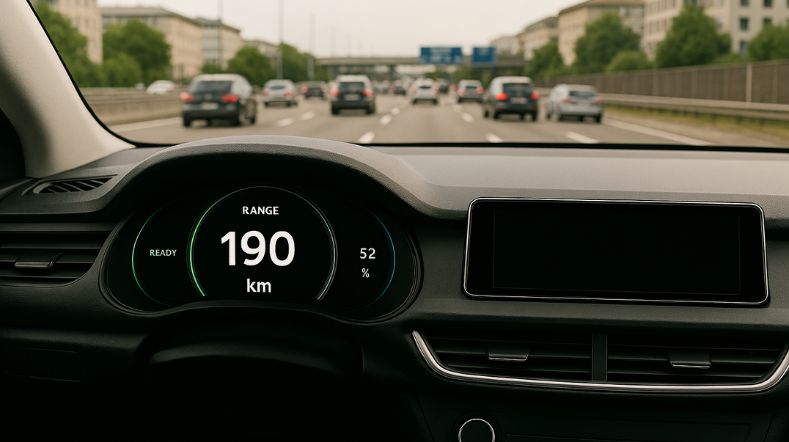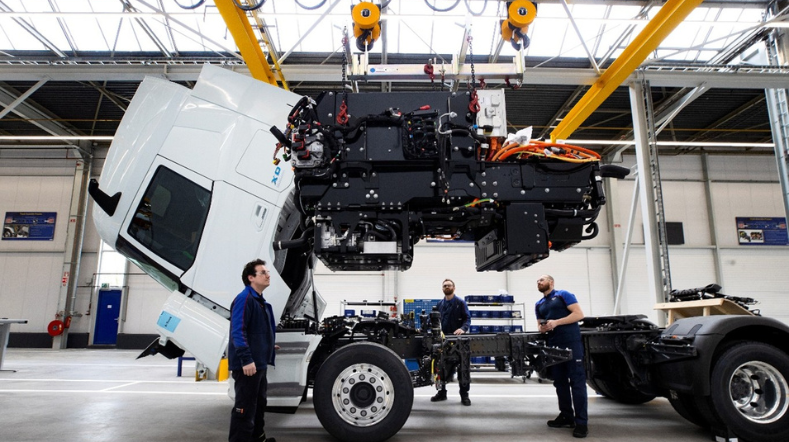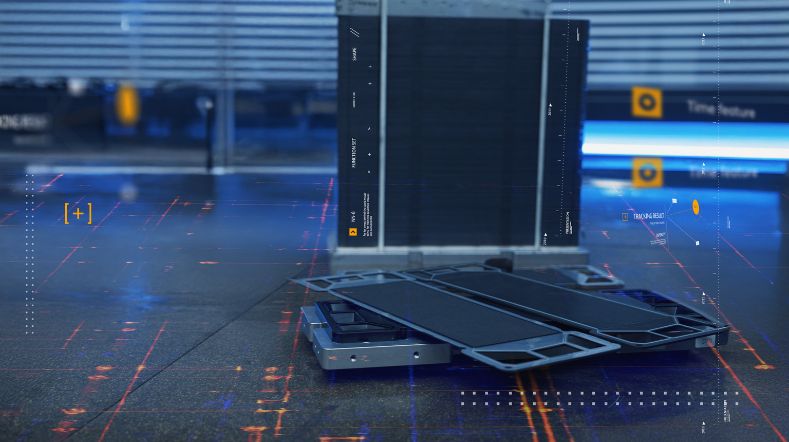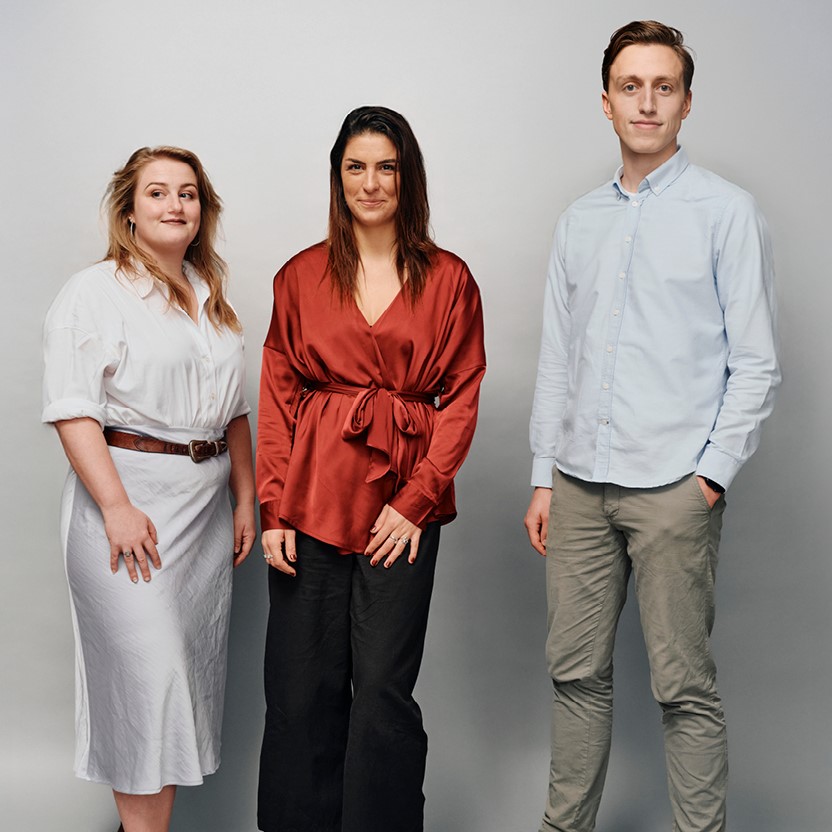
Inland shipping tests biofuel FAME for rapid sustainability
The CO2 emitted from inland shipping in the Netherlands can be drastically reduced within a relatively short period by blending diesel with FAME. But not everyone is convinced about this biofuel. To objectively identify any risks in its long-term use and clearly explain how industry can use it safely, TNO is launching a widely supported one-year practical trial.
Biodiesels important for rapid CO2 reduction on inland shipping
As a vital link within the Dutch transport sector, inland shipping in the Netherlands is also tasked with reducing its carbon emissions. Under the EU’s Renewable Energy Directive (RED III), inland shipping must slash CO2 emissions across the chain by 14.5% by 2030.
The sector currently emits 1.6 m tonnes of CO2 every year, equivalent to 550,000 passenger cars. Inland shipping accounts for 13% of freight transport including road and rail.
Although there are aspirations for fully battery-based electric shipping and sustainable fuels in the form of hydrogen and methanol, these are not short-term solutions. Biodiesels such as FAME and HVO are available sooner and are an affordable and at least interim solution. FAME, in particular, can help inland shipping to cut its CO2 emissions quickly, at a lower cost than most other options.
FAME: physically similar to diesel
What is FAME exactly? ‘FAME stands for Fatty Acid Methyl Esters. It is a biofuel made from fats and oils and is mostly produced from residues, such as recycled cooking oil, but also animal fats or vegetable oils like palm oil or rapeseed’, explains Jesse de Boer, a Scientist Innovator at TNO, who specialises in biofuels.
‘The fatty acids are converted by esterification into FAME, which has similar physical properties to diesel oil. FAME is almost always blended with diesel, in various blending ratios, from B15, i.e. 15%, to B30, or 30%.’
Availability is an issue, however. ‘The Renewable Energy Directive is a strong driver of the development of advanced, Annex IXa feedstocks for biofuels such as FAME. Many of these are residual products from agriculture and forestry. These fuels should not come at the expense of food production, and the well-to-wheel emissions can’t be too high. At TNO, we are working hard to map that out.’

"FAME offers significant emission gains in large-scale deployment: eight times less CO2 emissions per kilogram compared to diesel."
26% savings potential
The potential emission savings from deploying FAME on a large scale are huge. ‘If you look at CO2 emission factors, expressed in CO2 equivalents per kilogram from well to wheel, diesel emits eight times as much CO2 as FAME.
So, suppose you add 30% FAME for all inland shipping, you can reduce CO2 by about 26%. Not all inland vessels can run on so much FAME, though; the newer Stage V-vessels are often less suitable and the blend rate should be limited to, say, B10 or B20.’
Because this biodiesel can be deployed quickly and with limited investment, FAME is still worth exploring, De Boer says. ‘Especially in a sector where the technical and economic lifespan of equipment is so long. What’s more, FAME is available more quickly and cheaply than HVO, which has a more complex and expensive production process.’
Overcoming the anxiety
Despite all these benefits, inland shipping does not yet seem fully convinced about FAME. Jesse de Boer: ‘Safety and reliability are paramount in inland shipping.
In the initial trials of FAME, industry association KBN set up are porting form so that ship owners could report any problems. This revealed a number of issues, including clogged fuel filters and bacteria growth. But most worryingly, it brought vessels to a standstill.
This caused some anxiety, especially because the cause was unknown. They didn’t know why this was happening. Was the vessel in poor condition? Were the tanks dirty? Had the engine been fouled? Was there something wrong with a particular fuel batch? Many questions we do not yet have clear answers to, hence this practical trial.’
Trial provides clarity
Eight ships will sail for a year on different, higher FAME blends, up to B30, under the supervision of TNO. The study, commissioned by the Dutch Ministry of Infrastructure & Water Management (IenW), is expected to reveal in which compositions and under which conditions this biodiesel works best on inland vessels.
Jesse de Boer: ‘With this trial, we are accurately mapping the starting situation, keeping track of what it is like to run on FAME, and we will soon know exactly what technical and operational action we need to take to ensure vessel scan run smoothly on this new fuel. The trial should also reveal whether a specific fuel quality standard is needed for a particular blend for inland shipping.’
Broadly supported research
The inland shipping industry is closely involved in the study, with the cooperation of KBN, NOVE/VOS Foundation, VEMOBIN, MVO, and VT-group, as well as engine suppliers and the insurance industry. TNO is coordinating and reporting on the trial and will also analyse fuel samples.
‘Every time these ships bunker, a monitoring form is completed’, De Boer explains. "For instance, we collect information on oil change intervals, engine running hours, volumes bunkered, and filter change frequencies. We inspect fuel filters for deposits or contamination too.
External parties also regularly conduct fuel analyses. Under the current FAME standard (EN-14214), some critical substances are not restricted. We are also monitoring those substances in this trial.’

‘In the short and medium term, I see FAME as the key to making inland shipping more sustainable.’
Essential for sustainable inland shipping
The project will last for a year, so all four seasons can be tested. Results are expected to be published by the end of 2025.The three fuel suppliers involved in the trial – FincoEnergies, OK Slurink, and Den Hartog – have been testing ships on higher FAME blends for some time and do not expect many problems.
Initial studies show that the lubricating oil change interval is slightly shorter with FAME. These also looked at oxidation stability, as well as bacteria growth and clogged filters. In addition, FAME tends to attract water. Based on these experiences, these suppliers estimate the risks to be low.
Jesse de Boer: ‘With this trial, we can establish the safety parameters objectively. At TNO, we think it is extremely important to seize all the opportunities we canto become more sustainable. We must of course continue our efforts in battery-operated electric shipping and deploying hydrogen, methanol, and e-fuels. But in the short and medium term, I see FAME as the key to making inland shipping more sustainable.’
Get inspired
How far can you travel in an electric car?


National Growth Fund invests in Dutch battery consortium for heavy duty transport


TNO opens test cell for sustainable marine engines


Battery technology: 4 developments according to the Battery Lab


Fuel cells crucial for decarbonising heavy-duty transport and non-road machinery


